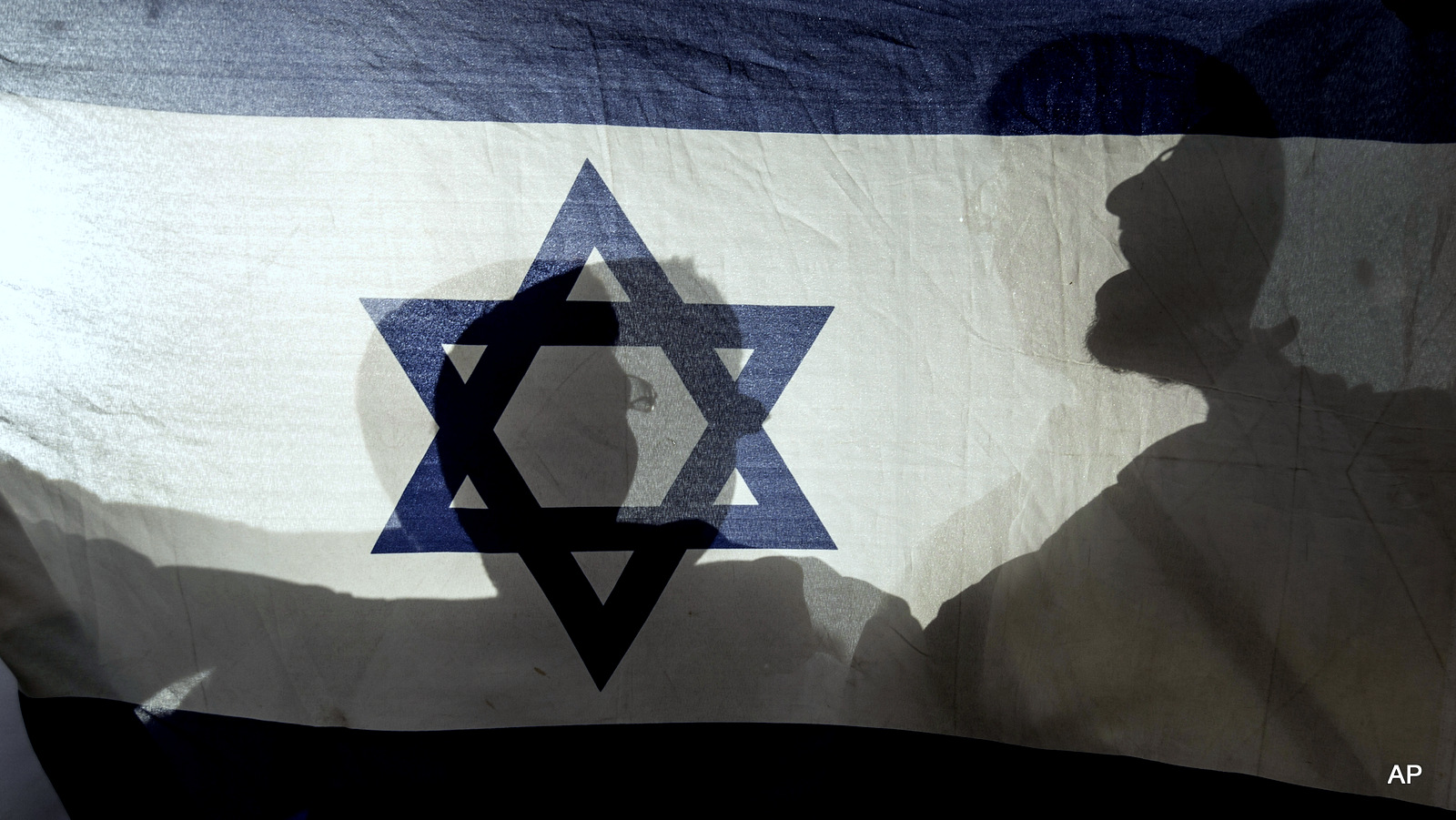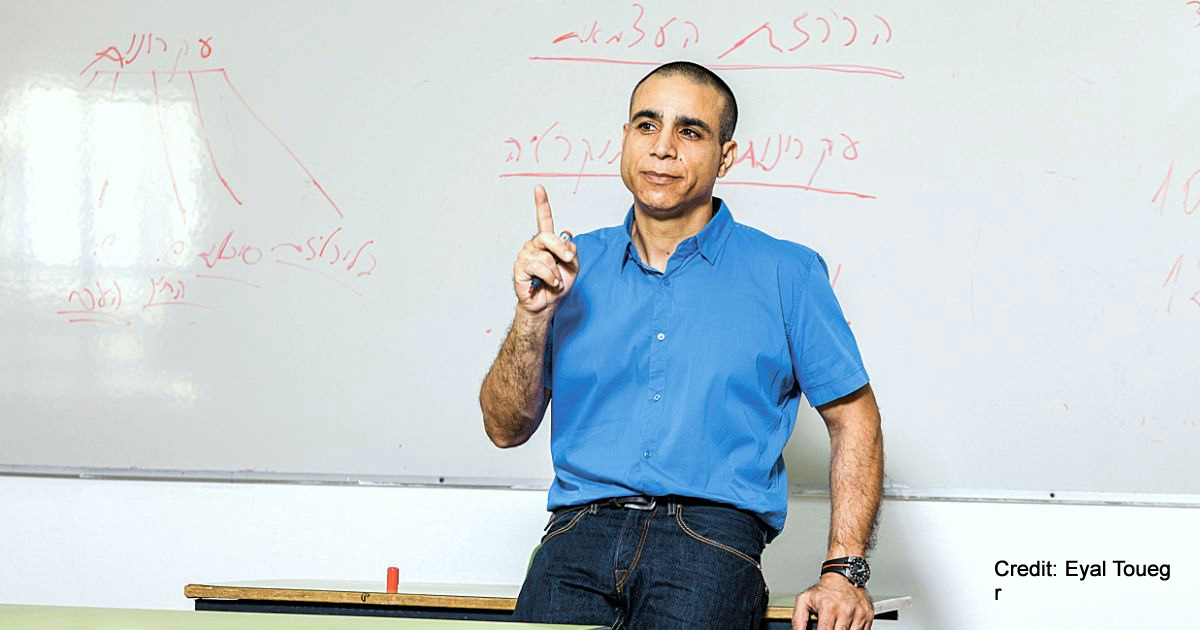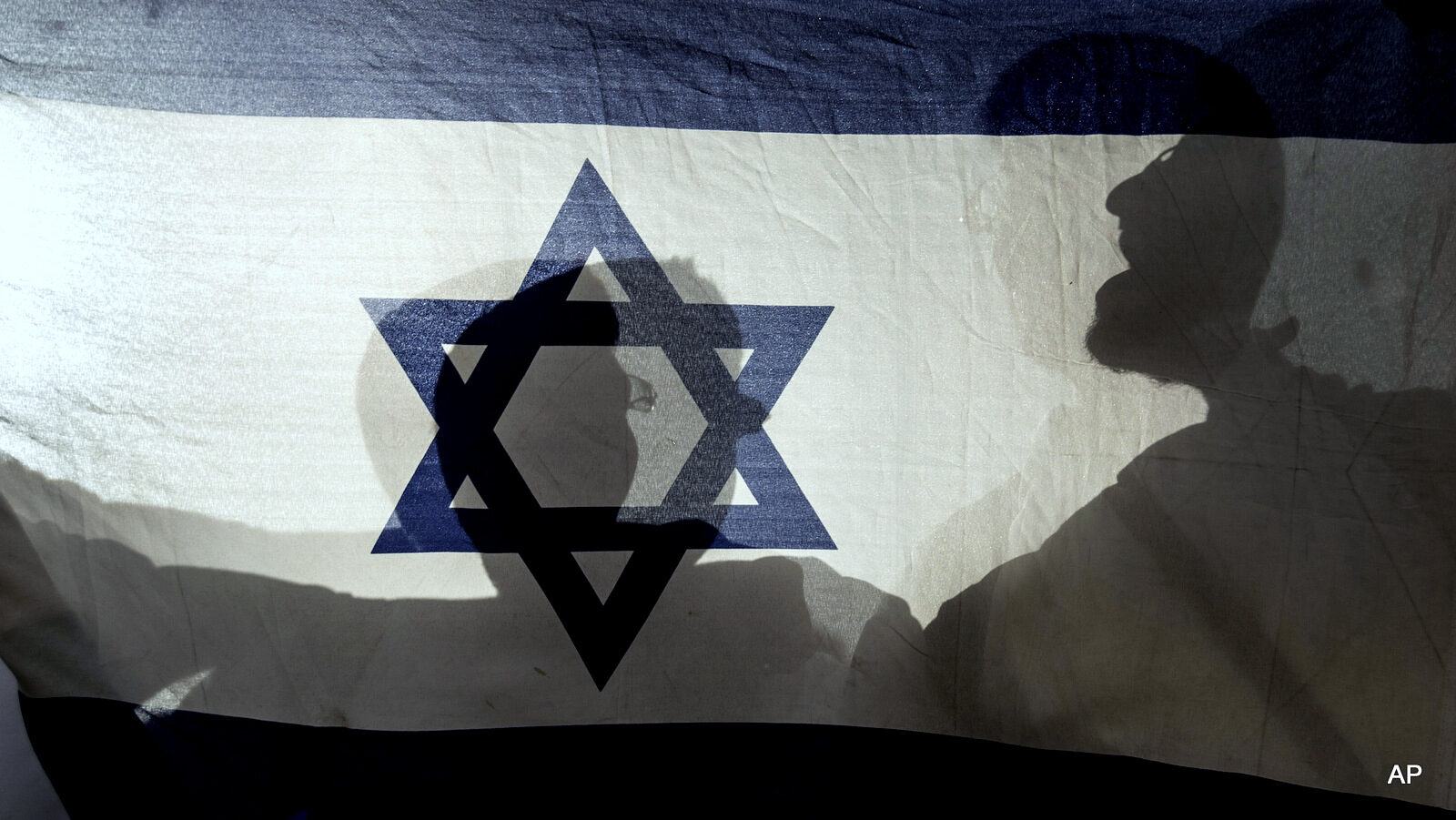
SEATTLE — Yizhar David devoted more than 20 years of his life to Israel’s domestic spy agency, known as the Shabak or Shin Bet. The agent, one of the organization’s best, directed a field unit, and he had an important job: running Palestinian informants throughout the West Bank.
Through these informants, David foiled hundreds of terror attacks on Israeli targets. He hunted would-be attackers, arresting and sometimes killing them. He felt he was saving lives and serving his country — the highest calling one could have.
Watch Ex-Shin Bet Agent Killed Palestinians, Suffered Breakdown:
To cultivate informants in the field, agents have to know everything about them: their families, their villages, their interests. They have to understand what a potential informer thinks and feels, what he wants, what he hates, and what he fears.
A good Shabak handler doesn’t just exploit and manipulate; he develops real, strong relationships with the Palestinians and others among whom he works.
Such was the case with David and a Palestinian leader he calls “Abu Taleb,” a relationship he documents in his recently published memoir, “Ticking Bomb,” a reference both to both suicide attacks and his own period of psychological torment in which he became a “ticking bomb.”
David’s book makes it clear that he did not believe Abu Taleb was a killer. He was a leader of his people, and he had hopes and dreams just as strong as any David had. The Shabak agent felt Abu Taleb to be his equal. He respected, even admired him.
But his superiors in the Shin Bet and military intelligence disagreed. Abu Taleb, they believed, was an operational ringleader of a militant cell. He was a terrorist, plain and simple. They planned to assassinate him. David told them they were wrong, marking the only time in his entire career that he argued against such an operational decision.
David knew the Palestinian man personally. David had sat in his dining room and been served hummus. They’d laughed at each other jokes. They knew and trusted each other.
He warned his bosses that Abu Taleb was one of the few Palestinian militants who genuinely wanted peace and was willing to put himself on the line for it.
But David lost the battle. In the end, he joined the operation and offered whatever intelligence was required to complete the task. And he did so “with a very heavy heart,” as he told a Channel 2 interviewer in April.
Abu Taleb, the man David had come to call a friend, was murdered by Israeli forces. It was a hard blow that made the agent question what he was doing. He wrestled with the notion that his work — to keep Israelis safe, to create a climate in which peace could eventually flourish between two peoples — may have been all for naught.
An Israeli security source told me he believes David’s “Abu Taleb” was actually Thabet Thabet, a middle-aged dentist and Fatah leader who was assassinated by the Shabak on New Year’s Eve in 2000. David, however, denied this in a phone interview.
Thabet’s killing provoked a firestorm of controversy on Israel’s left, which was much more powerful politically then than it is now. The Guardian reported, “For many peace activists, Thabet was a friend, and trusted ally. He was among the first Palestinians to dare to reach out to Israelis during the late 1980s.”
Uri Avnery, who the Guardian described as “active in the Israeli peace movement for nearly 30 years,” said:
“[Thabet] was a man of peace. … He cooperated with us for years. Even when he was under arrest years ago, he spoke about a peace. But he was also a patriot, and when the war of liberation started, I suppose he was part of the mass movement.”
When the Channel 2 reporter asks David how many Palestinian militants he killed, he says he would never tell her.
As he reflects on the question, though, he seems to blanch. He says he’s responsible not only for those he killed himself, but also for those killed by Israeli officers he dispatched. And he’s responsible for every attack that went wrong, every attack in which someone was killed in error, including the two innocent, unarmed Palestinian brothers he accidentally killed during the First Intifada, or Palestinian uprising, which began in 1987.
So she asks whether he counts them all — those he’s killed himself, and those he’s directed others to kill, and those who have died as innocent bystanders. “I count them all,” he says, “and that’s my problem.”
The dead come in dreams
David had always slept soundly and never remembered his dreams. But suddenly, he began having nightmares which startled him awake, drenched in sweat.
During meetings at Shabak headquarters, he would see his friend-turned-victim before his eyes. When the others at meeting would ask his opinion about an important matter, he was gripped by terror because during those last few minutes he hadn’t been in the room at all, but in the car with Abu Taleb as he drove to his death.
David hoped it was a temporary phenomenon. After all, he was a good worker, respected by his subordinates and bosses. He hoped everything would eventually return to normal and he could resume work with the same intensity he’d had before. But as weeks turned into months, the nightmares and visions persisted.
Then things got worse. Abu Taleb’s fellow Palestinian militants wanted revenge. They blamed David for Abu Taleb’s death. In a recording threatening him and his family, Abu Taleb’s colleagues warned that just as David was an intelligence agent, they’d amassed intelligence on him. They knew where he lived. They knew the car he drove, who his children were. They would get him. Now, instead of being the hunter, he was the hunted — not a welcome position for a Shabak agent.
In the midst of his wife’s pregnancy, they had to gather all their belongings and abandon their home. For four months, they lived in a hotel with guards providing around-the-clock security.
The dead have eyes
Just as when Palestinian militants he was tracking were killed in raids, there were the times when despite his efforts, David didn’t catch the suicide bomber he was after. Those were the worst because it meant his fellow Israelis were killed in horrific explosions.
In the TV interview, David recounts one image he’s never been able to erase from his mind: Walking through the aftermath of a terror attack, he sees a young girl. She is dead, but her body is intact. Her deep blue eyes are wide open, looking at him.
This, he says, was the first time doing his job affected him so deeply. He went over to her and closed her eyes, but it wasn’t like in the movies when the viewer sees “The End” and knows the film is over. On that night and many others, as he tried to sleep, she crept back into his consciousness and looked at him with her blue eyes wide open.
He started blaming himself for every terror attack, seeing himself as a bad man, someone with the blood of hundreds of victims on his hands. If only he had done this or that, so-and-so might still be alive, he thought. The victims came to him in the night, and he feared going to sleep because he didn’t know which one would come to him that night.
He believed his failures meant he was worthless. After 10 years of sleeplessness, crippled by anxiety, he couldn’t bear it anymore. He began having thoughts of suicide. He stood on the balcony of his apartment and thought he would jump.
In his book, he writes (in the third person):
“He wanted to write a song, with lyrics and a melody. It would be a song about death. But he couldn’t, because he himself was already dead. And no one else would write a song about him.”
Eventually, he resolved not to die, but to live. He found a therapist who helped him understand that he was suffering from post-traumatic stress disorder (PTSD). And he found solace in the knowledge that he was not alone.
David starts a new life
Three years ago, David resigned from the Shabak with his PTSD diagnosis. He now receives a disability payment and pension, and he’s embarked on an entirely new career as a high school teacher.

Teaching civics and citizenship classes, he challenges his students to broaden their thinking about the Israeli-Palestinian conflict. He told Haaretz last year:
“I saw things that Israelis from good homes do to the Palestinian population – and when I investigated the incidents as part of my duties, I realized this was largely due to their lack of familiarity with the Palestinian people. They meet them for the first time at a checkpoint and immediately treat them as enemies. It doesn’t matter whether it’s a woman or a child – as far as they are concerned, the whole Palestinian people is the enemy, because they know only the Israeli narrative.”
As a former Shabak agent, he has a certain stature that allows him to do and say things that would be dismissed if he was the typical bleeding heart liberal.
He’s founded a nonprofit, Shared Life, and teamed up with academic researchers to implement this curriculum in Israeli schools. He described their strategy to Haaretz:
“The Shared Life course I teach is about the Arab-Israeli conflict and familiarizes students with all the groups within Israeli society. It’s not the same as the existing program in the school system, which involves encounters between Arab and Israeli students, or between secular and ultra-Orthodox groups. I believe meetings of that kind actually enhance stereotypes. If a student hates Arabs, it’s unlikely a visit will change that.”
‘Have you paid a price?’
At the end of the Channel 2 interview, the reporter asks: “Have you paid a price?” David answers slowly, deliberately: “I paid a very high price, but it was worth it. As I say this, I’m not totally at peace with my answer. But I hope that sometime in the future I will be.”
David’s story is, of course, deeply affecting, and the interview showcases him as a man in the most dire of emotional and psychological straits, someone supremely human.
Yet there is something very important missing from his story: political context. There is no critique of the methods used and their efficacy. He arrested and killed scores, if not hundreds, of Palestinian militants. Did it work? Have targeted killings succeeded in reducing terrorism or led to a political solution? Given the recent murder of a 13-year-old Israeli settler and the deaths of scores of Israelis during the current round of violence, the answer is clearly no.
In that case, what solution can the intelligence apparatus offer that is better? This is where they come up short. They have only two options — killing or making arrests — but neither works in the long run.
David offers no mention of any of this. So, despite his humanity, he completely misses the most important point of his crisis. Maariv journalist Ran Edelist notes this in his review (Hebrew) of David’s book.
Why was he beating his head against the wall? Why was he suffering? Did his work or his suffering help himself, the Shabak, or the nation? If not, what should he have done differently?
These are all deeply troubling questions for a Shabak man whose loyalty to his job and country is absolute. How do you probe the deepest convictions you’ve held and find them wanting? After you do, how do you pick up the pieces and build a meaningful life?
The Channel 2 interview is an emotional experience for the viewer. Yet one can’t help but wonder: Is David using his PTSD diagnosis to avoid exploring even more troubling questions about what he did?
Ultimately, David is a man whose tragedy continues. He either cannot or will not pursue the contradictions to their ultimate conclusion. In the Israeli-Palestinian conflict, an analysis that relies solely on the human element but does not consider political factors will fail. Individual human beings are not the ultimate problem here; the problem is the systems under which they live.
Change will never come if we focus only on the individual and do nothing to address the systems which create the injustice.. And that is the ultimate tragedy.


